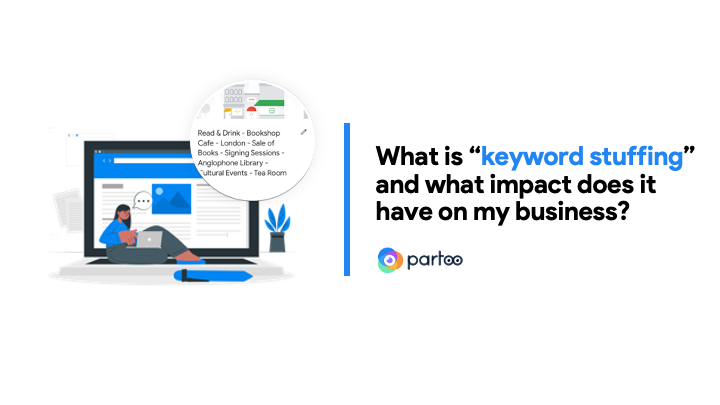
Is the Pharmaceutical Sector in Saudi Arabia Unlocking the Full Potential of Online Visibility and E-Reputation?
In today’s digital-first landscape, a pharmacy’s online reputation and local visibility can strongly influence a…

Table of contents
To improve referencing of a listing, information provided must be as complete and up-to-date as possible. Certain information, such as the name of the establishment, has a particularly important impact on the referencing of the listing and has led to the development of so-called “fraudulent” optimisation practices. One of the most common is keyword stuffing.
This is an effective practice for moving up in the results, but it is contrary to the rules of the search engines and is increasingly punished.
Keyword stuffing is the incorporation of keywords into a listing or web page to improve its ranking in search results.
In local referencing, this means, for example, adding keywords to the information in the Google listing (name of establishment, list of services, etc.). Generally, the integrated keywords are the city, the sector or the activity of the establishment.
In the case of the name of a business, we speak of keyword stuffing as soon as the name displayed on the listing is different from the real name. Google considers that the real name of an establishment is the one displayed on its building, its logo, its website, or even the one used on the phone to customers.

Keyword stuffing has a negative impact on the user experience (illegible information) and is punishable by search engines as it is identified as poor quality content. This is contrary to Google’s guidelines and over the years Google has launched several updates to limit the impact of keyword stuffing:
If you do “keyword stuffing” on your business listing and Google detects it, the possible sanctions are:
Listings that use keyword stuffing are often detected as a result of a name suggestion by a user, or a report to Google (from a competitor for example). An experiment by SterlingSky shows that out of fifty reported listings, 60% received a warning, 20% were partially suspended and 20% severely suspended.
In the case of a hard suspension, there are two possible outcomes: contact Google support to ask them to make the listing accessible, which can take several months, or start from scratch by creating a new listing.
Keyword stuffing is effective in the short term but risky in the medium to long term.
We therefore recommend that you avoid as much as possible the use of this and any other practice aimed at deceiving Google’s algorithm.
As always, we are available to advise you on this subject and the visibility of your establishment in general! Do not hesitate to contact us
Want to easily develop your business through the Internet? It’s possible thanks to Partoo!
Download our 2025 barometer and discover which companies manage their online reputation the best, along with recommendations to enhance your business!
Receive our best articles and practical guides directly in your inbox every month